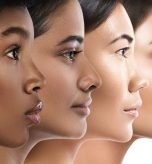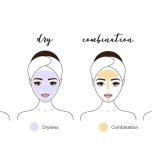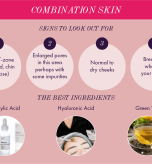Acne is one of the most common skin concerns that affect people of all ages. Whether it’s occasional breakouts or persistent acne, it can take a toll on both your skin and your confidence. Fortunately, dermatology offers a variety of treatments that can effectively address acne and help clear your skin. In this article, we’ll explore the top dermatology treatments for acne, including prescription medications, chemical peels, laser treatments, and more.
1. Prescription Topical Treatments
When over-the-counter products aren’t enough, dermatologists may recommend prescription-strength topical treatments. These medications often contain more potent active ingredients that help treat acne from the surface.
- Retinoids: Retinoids, like tretinoin and adapalene, are derivatives of vitamin A that help unclog pores, prevent new acne breakouts, and fade dark spots. They increase cell turnover and encourage the growth of new, healthy skin cells. Retinoids are considered one of the most effective treatments for acne, but they may cause dryness or irritation initially.
- Topical Antibiotics: These include medications like clindamycin and erythromycin, which reduce acne-causing bacteria and inflammation. Topical antibiotics are often combined with other acne treatments for better results.
- Benzoyl Peroxide: Benzoyl peroxide is a powerful antimicrobial agent that kills acne-causing bacteria. It also helps to clear blocked pores and reduce inflammation. Often available in gels, creams, or washes, benzoyl peroxide is a popular choice for those with moderate acne.
2. Oral Medications
For more severe or cystic acne, oral medications may be necessary to treat acne from the inside out. Your dermatologist may prescribe one or more of the following options:
- Oral Antibiotics: Doxycycline, tetracycline, and minocycline are common oral antibiotics that help reduce the bacteria and inflammation associated with acne. They’re typically prescribed for moderate to severe acne and may be used for a few months to clear up active breakouts.
- Hormonal Treatments: Hormonal fluctuations, particularly in women, can trigger acne. Birth control pills that regulate hormones can be effective in treating acne. Spironolactone is another option for women with acne related to hormonal imbalances, as it blocks the effects of androgens (male hormones) that contribute to acne.
- Isotretinoin (Accutane): Accutane is often a last-resort treatment for severe, cystic acne that hasn’t responded to other medications. This oral medication is incredibly effective in shrinking oil glands, preventing clogged pores, and reducing inflammation. However, it comes with potential side effects, including dryness, sensitivity to sunlight, and, in rare cases, mood changes.
3. Chemical Peels
Chemical peels involve applying a solution to the skin that removes dead skin cells and promotes cell turnover. A dermatologist may recommend chemical peels to exfoliate the skin and reduce acne scars or prevent future breakouts. They can be particularly effective for people with acne-prone skin who also experience clogged pores.
There are various types of chemical peels, such as glycolic acid, salicylic acid, and TCA peels. Your dermatologist will select the best peel based on your skin type and acne severity.
4. Laser Treatments
Laser therapies are an effective option for treating acne and acne scars. There are several different types of laser treatments that target acne from multiple angles:
- Blue Light Therapy: This treatment uses blue light to kill acne-causing bacteria and reduce inflammation. It’s a non-invasive treatment that requires no downtime.
- Laser Resurfacing: This treatment helps reduce acne scars and promotes collagen production for smoother, more even skin. Laser resurfacing can be beneficial for those with post-acne scars and pigmentation.
- Pulsed Dye Laser: This laser targets blood vessels and reduces redness caused by acne. It can also help treat acne scars and improve skin texture.
5. Extraction and Drainage
For large, painful cystic acne, dermatologists may recommend manual extraction or drainage. This involves removing the contents of the cyst or pimple to reduce swelling and prevent scarring. Although effective, this treatment should only be performed by a licensed dermatologist to avoid further irritation or infection.
Conclusion
Acne can be a challenging condition to manage, but with the help of dermatology treatments, clear, healthy skin is within reach. Whether you opt for prescription medications, laser therapy, or chemical peels, a dermatologist can create a personalized treatment plan to help you achieve your skincare goals. Always consult with a professional before starting any acne treatment to ensure the best results and minimize potential side effects.
 English
English 



